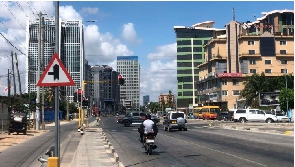Fuel prices in Tanzania have increased for the fourth consecutive month, with diesel taking the biggest hit. The new prices, announced by the Energy and Water Utilities Regulatory Authority (Ewura) on October 3, 2023, will take effect on October 4.
In Dar es Salaam, a litre of petrol will now cost Tsh3,281 ($1.31), up from Tsh3,213 ($1.29). A litre of diesel will now cost Tsh3,448 ($1.38), up from Tsh3,259 ($1.30). Kerosene prices have also increased, with a litre now costing Tsh2,943 ($1.18).
Fuel imported through the Tanga Port will be even more expensive, with petrol at Tsh3,327 ($1.33), diesel at Tsh3,494 ($1.40), and kerosene at Tsh2,989 ($1.20).
Ewura has attributed the price increase to a number of factors, including rising global fuel prices, increased export charges, reduced oil output by Opec+, as well as economic sanctions placed against Russia by western countries.
"The price increase has been compounded by global factors, with global fuel prices skyrocketing by 4.21 percent, putting a strain on export charges, which increased by 17 percent for petrol, 62 percent for diesel, and 4 percent for kerosene," Ewura said in a statement.
The continued oil output reduction by Opec+, an alliance of oil-producing countries led by Saudi Arabia and Russia, is also contributing to the price increase.
Opec+ has announced that it will cut production by 1 million barrels per day beginning in November, which is expected to push prices up further.
The fuel price increase is bad news for Tanzanian motorists, who are already struggling to cope with the high cost of living.
It is also likely to lead to higher prices for goods and services, as businesses pass on the increased cost of transportation to consumers.
The government has not yet announced any measures to cushion the impact of the fuel price increase on Tanzanians.
However, some experts are calling on the government to reduce fuel taxes or provide subsidies to low-income households.
Africa News of Wednesday, 4 October 2023
Source: theeastafrican.co.ke

















